Patronage Survey: Your Results
How do people Christian workers understand and engage patronage? Because 378 people completed the short patronage survey we now have a better idea of how people perceive patronage. This blog posts presents my summary of the data for the broader missions community. I trust this offers helpful insights.
Who took the survey?
What is your cultural-ethnic background?
- 90% White/Western/European
- 5% Asian
- 5% other
What is your ministry context?
- 57% Western, the majority culture
- 12% Asian
- 10% Western, a minority culture
- 7% African
- 4% Latin
- 4% Muslim
- 7% other
What were their opinions about patronage?
When people ask me for money, I feel….? Responses to this question had the starkest difference between Western and Majority World respondents, so I separate out their answers.
The most common Western responses (333 results):
- awkward
- conflict(ed)
- obligation
- annoyed
- suspicious
- guilty
The most common Majority World responses (39)
- obligated
- glad/want to help
- suspicious
People self-rated their response to “When people ask me for money, I feel….?” as:
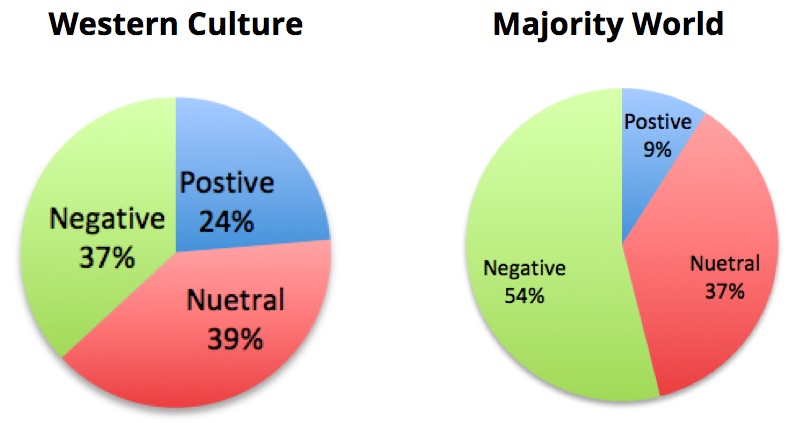
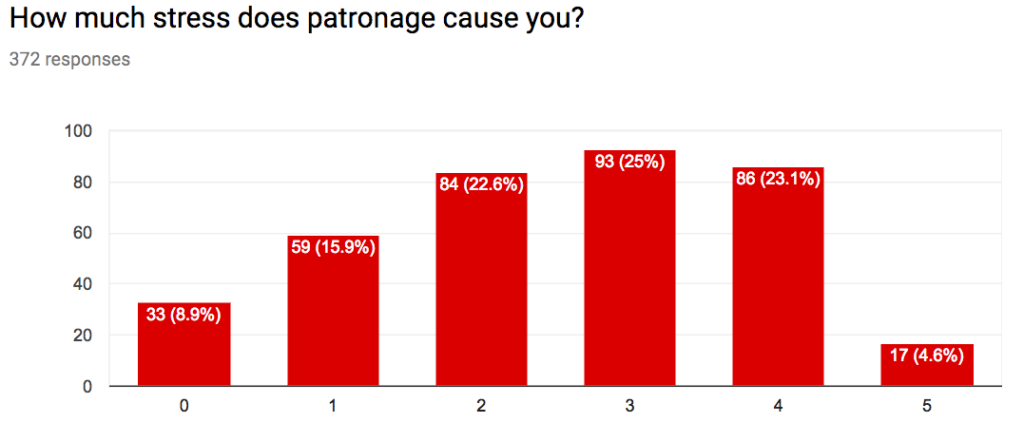
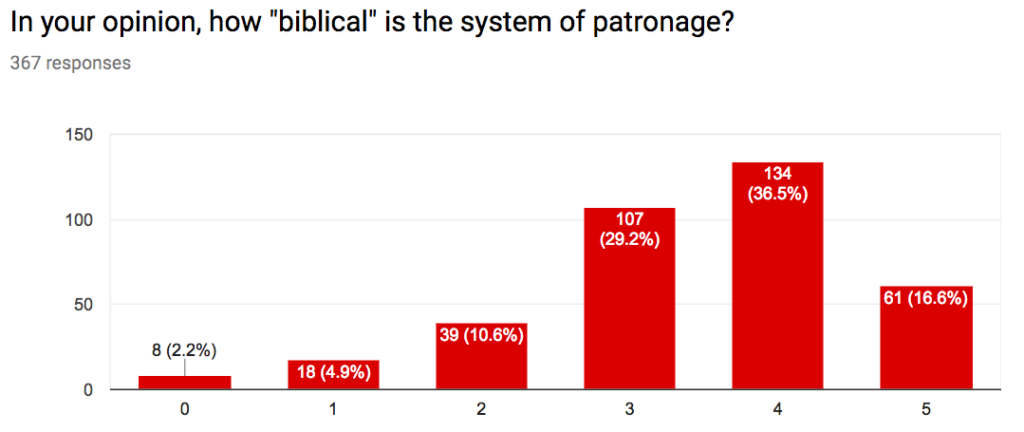
Note: In hindsight, I realize this question is not clear. People could read “biblical” either descriptively (Does patronage occur in the Bible?) or prescriptively (Should Christians today use cultural patronage?). I meant the latter, but suspect people read it as the former since the results show a very positive view of patronage.
How is patronage expressed in cultures?
What words are used for patron/age in your context?
- Africa: boss, patron, sponsor
- West: sponsor, donor, sugar daddy
- Asia: older brother/sister, aunt/uncle, godparent, master
- Latin: patron, boss (jefe)
- Middle East: teacher, old brother
What areas of life does patronage affect in your context? (Number of mentions)
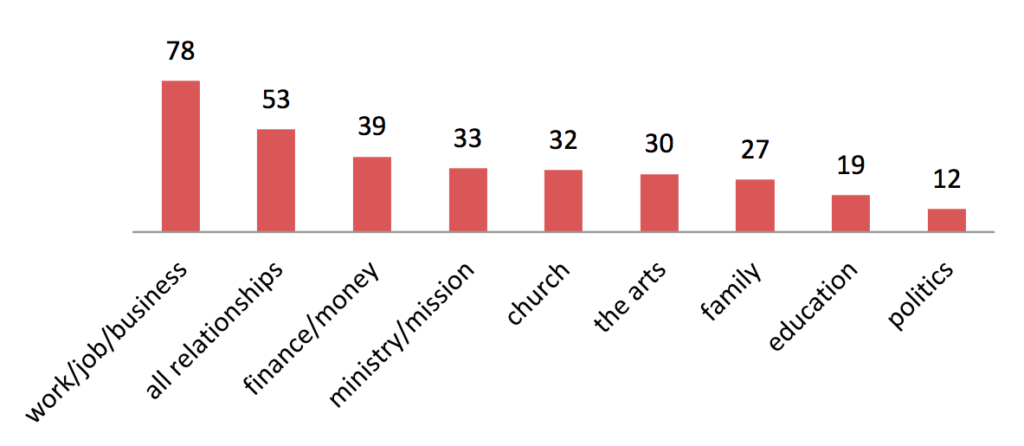
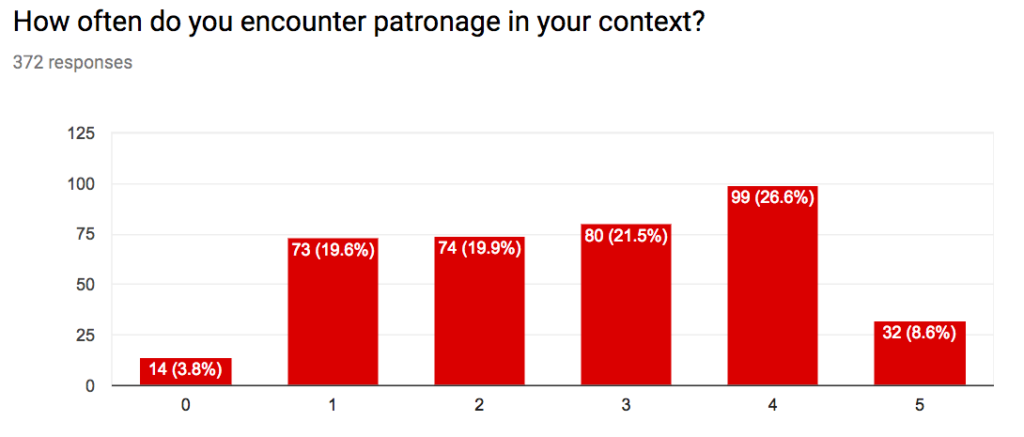
How do people understand patronage?
How would you define patronage? People noted these 4 thought clusters to explain patronage:
- a relationship, a person
- helping, providing, supporting, giving
- power, status, obligation, loyalty
- return, mutual, benefit, exchange
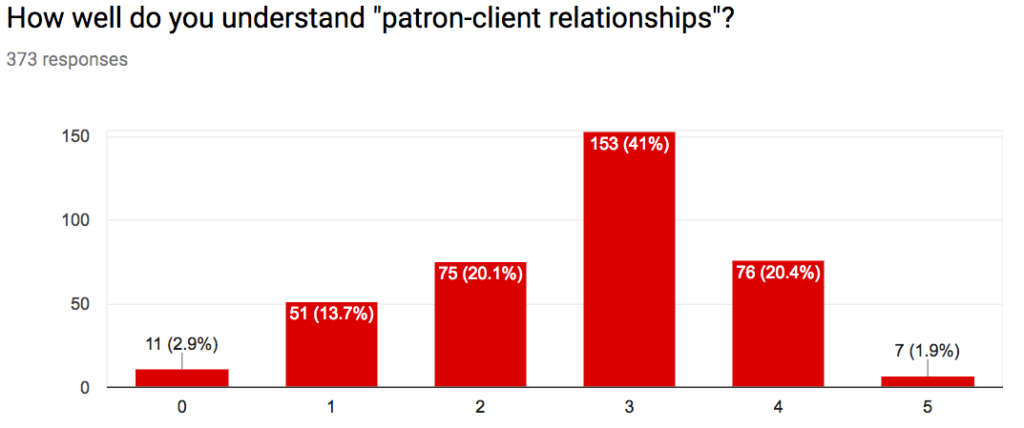
Regarding patronage and evangelism, which statement best describes you?
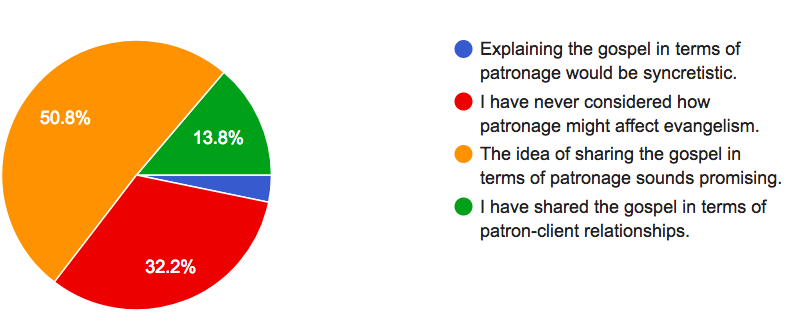
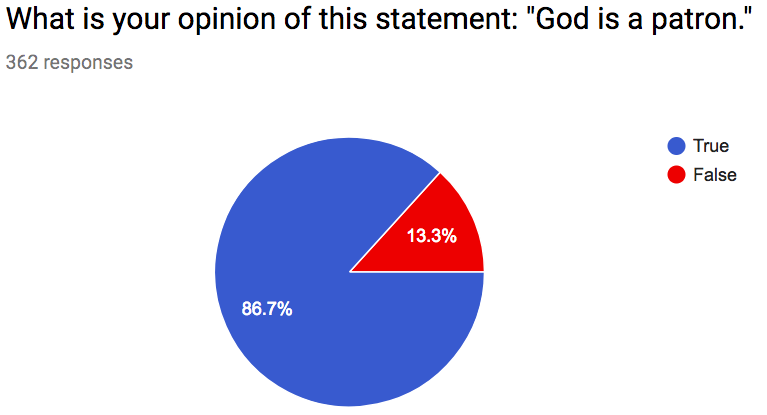
God is a patron because…(according to people who answered “yes” to above Q)
- God gives and provides (by far the most common response)
- God is the source of everything we have
- God deserves loyalty from us
- God possesses everything
- God is Father/God cares for his children
- God takes responsibility/initiates our relationship
- God is sovereign and powerful
God is NOT a patronage because……(according to people who answered “no” to above Q)
- God does not expect any return
- The term “patron” is too corrupted and negative
- God gives freely, not manipulatively
- God does not support others’ cause, just his own
- I don’t think of God in these terms
What questions do you have about patronage?
People asked many insightful questions about patronage, as grouped below. This list was actually encouraging to read, as I address these very topics in my forthcoming book Ministering in Patronage Cultures: Biblical Models and Missional Implications (IVP, June 2019). I will also do a blog series answering each of these important questions.
- When is patronage good/positive/healthy/biblical? And when is it bad/negative/unhealthy/ungodly?
- What does biblical/redeemed patronage look like?
- How does patronage differ from corruption, bribery, dependence, and patriarchy?
- What is the definition of “patronage”?
- What are Western examples of patronage?
- What are real life examples of patronage?
- What is a patron-focused gospel presentation for evangelism?
- What are biblical stories of patronage? Where does it help hermeneutics?
- How is God a patron?
A Story?
There were too many good stories to include, so I only mention a few themes. The first two were the most commonly expressed sentiments. The final three points were frequent scenarios people mentioned.
- “I now see how that situation involved patronage.”
- “I wish I know before that I was a patron in their eyes.”
- Relationships with house-helpers are missionaries’ most common experience of patron-client relationships, often in a positive way.
- For good and bad, people often have relationships end because of unmet patronage expectations.
- Patronage expectations in global contexts are tied to ethnicity. White skin implies patron(age).
Any surprises or insights from the above summary? Please share below in the comments section below.

Very interesting! I never considered patronage as an issue when we were on the field — but now I wish I would have. It might have helped us understand some difficult situations better. Now I look forward to learning how we SHOULD have dealt with things in a better, more helpful way. Thanks for your work on this.
Thank you!
Someone emailed me: Do you have the “God is a patron” breakdown by continent or western/majority?
My response: Of the 41 Majority World people who reply, 6 said that God was NOT a patron. That 14.6% is just slightly higher than what the Western/Europeans answered.
Since that sample size of 41 is fairly small, I’d be cautious about reading too much into that.
And as promised in the original email announcing the survey, two respondants were selected to win a free book. Sorry if you weren’t one of them. 🙁